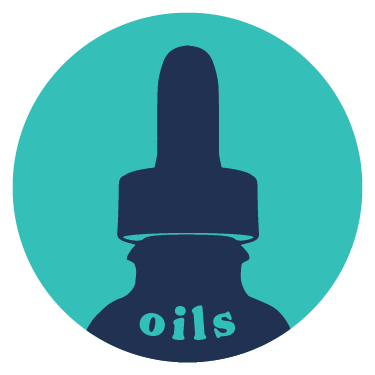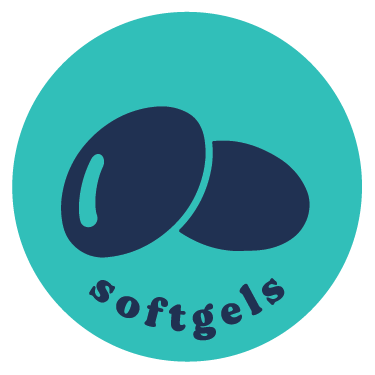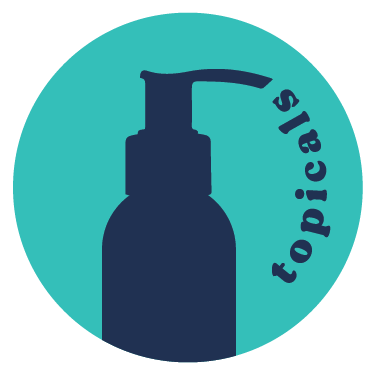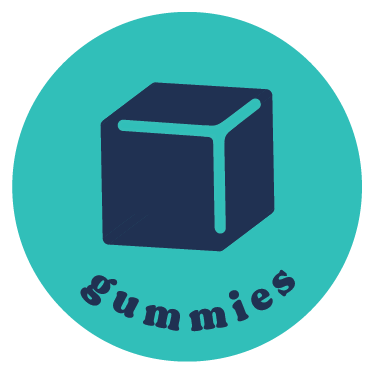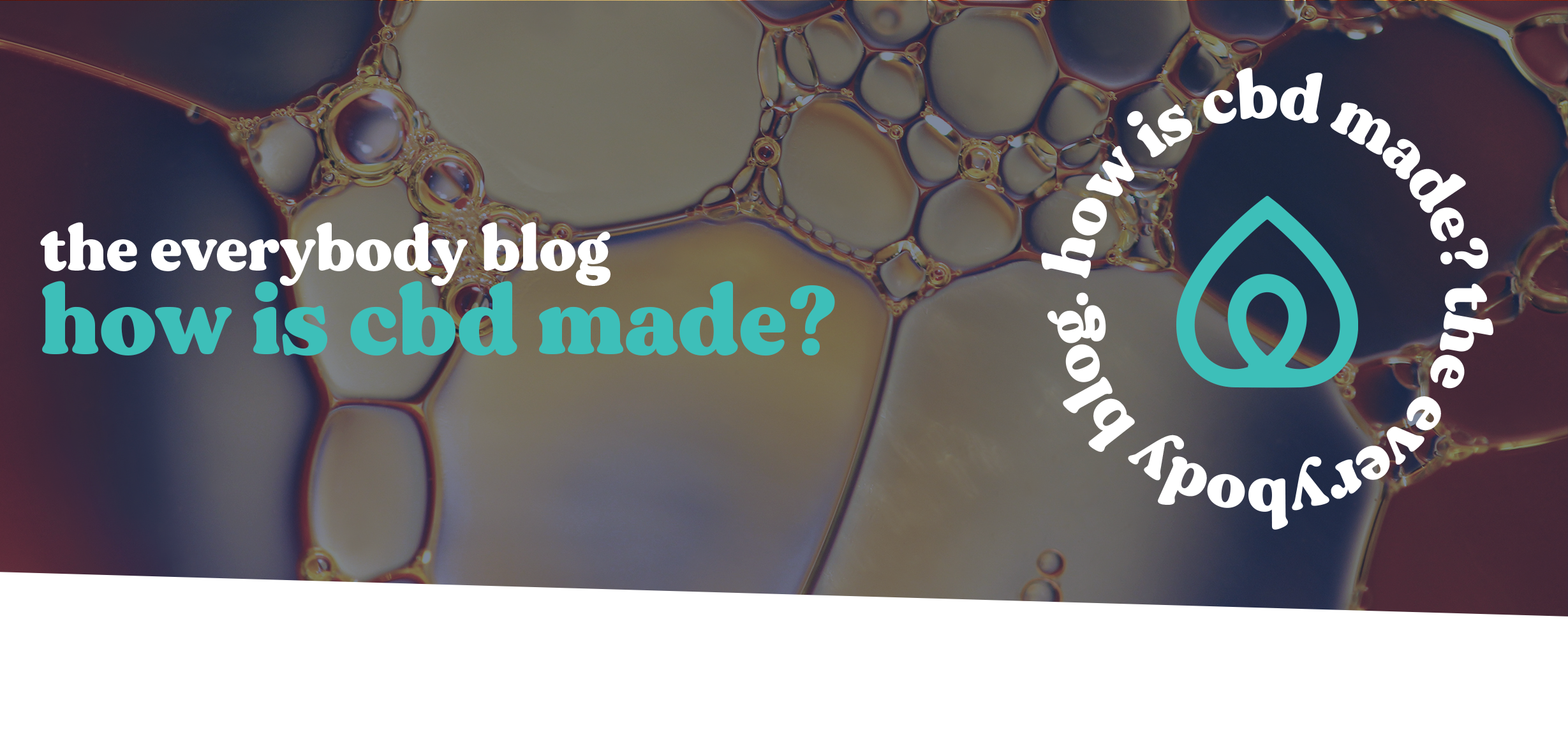
How is CBD Made?
How is CBD Manufactured & Produced?
CBD is produced from the hemp strains of the cannabis plant, as opposed to the marijuana strains. Although marijuana is a Class 1 Controlled Substance, and thusly illegal, hemp is not. This is due to marijuana containing large amounts of the psychoactive phytocannabinoid, THC, while hemp contains very negligible amounts. In fact, per the 2018 Farm Bill which relegalized hemp, hemp must contain no more than 0.3% THC.
Though hemp may not contain high degrees of THC, it does contain terpenes and cannabinoids to varying extent, depending on the variety. Industrial hemp which is grown for its fibers that are used in textiles and building materials, contains little cannabinoids and terpenes that are sought after for CBD oil- although some manufacturers still use the inexpensive variant to produce CBD products.
Quality manufacturers utilize a hemp strand known as PCR (phytocannabinoid rich) Hemp. PCR Hemp contains up to 10x the concentration of CBD as generic industrial hemp, without negligible amounts of THC. Preferably this hemp is grown in the US to make sure it conforms to the strictest cultivation regulations.
After CBD is harvested, it is dried and then milled into a powder, at which point the phytocannabinoids and terpenes must be extracted from the plant. The most common and safest way to this is through the use of supercritical CO2 Extraction. Acting as a solvent, CO2 is passed through hemp at a specific temperature and pressure, and the desirable compounds are removed. Some manufacturers use a similar CO2 extraction method known as subcritical CO2 Extraction, which occurs at lower temperatures and pressures than its supercritical counterpart and fails to remove as much terpenes and phytocannabinoids from the hemp.
After the terpenes and cannabinoids are removed from the hemp, the extracted material is referred to as raw hemp extract. The raw hemp extract contains all the essential oils derived from the hemp plant, but also impurities, so the manufacturing process must proceed to the separation and refinement processes.
During separation, companies such as Everybody use proprietary manufacturing techniques to remove the CO2 used during the extraction process, recycling it for later use. In the refinement process unwanted plant materials such as chlorphyll, pigments, and wax are removed. Depending on the manufacturer, further refinement may take place to fully-remove any trace of THC (the reasons for doing or not doing this will be discussed in the later section on CBD types). The filtered oil leftover after refinement is referred to as CBD Distillate.
The next step in the production process is perhaps the most important part of the process for the consumer, Third Party Lab Testing.Reputable manufacturers have third-party certified labs test their extract to verify the strength and content of the CBD Distillate, as well as to eliminate the possibility of contamination from things like microbials (E. coli, yeast, mold), potency (ensuring what’s on the label is in the bottle), heavy metals (lead, arsenic, mercury and cadmium) and pesticides (60 total). More importantly, transparent and reputable manufacturers will provide this testing to their consumers on a per batch basis, enabling their customers to verify the contents of their purchase.
For products such as Soft Gels, the raw CBD Distillate may be further refined once more to be optimally tailored for use by the body. This process is called, nanoemulsion, which refers to the emulsifying of CBD oil into particles lower than 250nm in diameter. At this size, CBD oil is not only water soluble, it is more easily absorbed by the body.
By providing smaller particles that are more easily absorbed into the bloodstream, manufacturers increase the bioavailability of their product. Bioavailability is the percentage of an active compound in a given serving that ends up available for the body’s use. By consuming or applying CBD to the skin, some portion of the dose will be lost before it can be absorbed and used, either through entrapment in fatty tissues, or being metabolized.
Although bioavailability varies by product type, greater bioavailability is always a benefit to the consumer. For instance, if two products of the same or different varieties are taken at the same dosage, and one product has a bioavailability of 60% versus the other whose is 30%, the former product has twice the effective dose (dosage actually used by the body). This means products with greater bioavailability have a greater value for the consumer by virtue of providing more actual CBD to the body to use. In general, the smaller the particle, the greater bioavailability.
Finally, CBD Oil destined for tinctures and other products are mixed with carrier oils which are a “base” for the final product that aid in absorption of the CBD Oil into the bloodstream, keep the product shelf stable, and disperse the CBD evenly for easy dosage measurements. These oils are saturated fatty acids which are derived from a variety of plants depending on the manufacturer, although some are superior to others based on their ability to carry CBD into the system effectively and their standalone benefits.
The carrier oil most commonly accepted as best for CBD products, is MCT Oil (medium-chain triglyceride). MCT Oils are formed from chains of fatty acids (known as trigylcerides), and can naturally be found in olives, sesame, and avocado- although the most abundant source is coconut oil. In recent years, MCT oil has been taken as a dietary supplement by itself for its benefits in boosting immunity, providing energy, and increasing metabolic health. Another popular carrier oil is Olive Oil, thanks to its high concentration of antioxidants, and ability to safeguard against heart disease, stroke, and Alzheimer’s.
As mentioned, by combining CBD with MCT Oil or Olive Oil, bioavailability is increased for the CBD Oil product, thereby increasing the effectiveness of the product. This is especially important for products that are ingested, such as soft gels, because the portion of the CBD that would otherwise be broken down by the liver. Since CBD is lipophilic (fat loving) it bonds with the saturated fatty acids that comprise the carrier oils, allowing them to pass easily and effectively into the bloodstream. By combining nanoemulsion particles of CBD with an effective oil carrier, ingested products can be as effective and fast acting as their sublingual (taken under the tongue) counterparts.
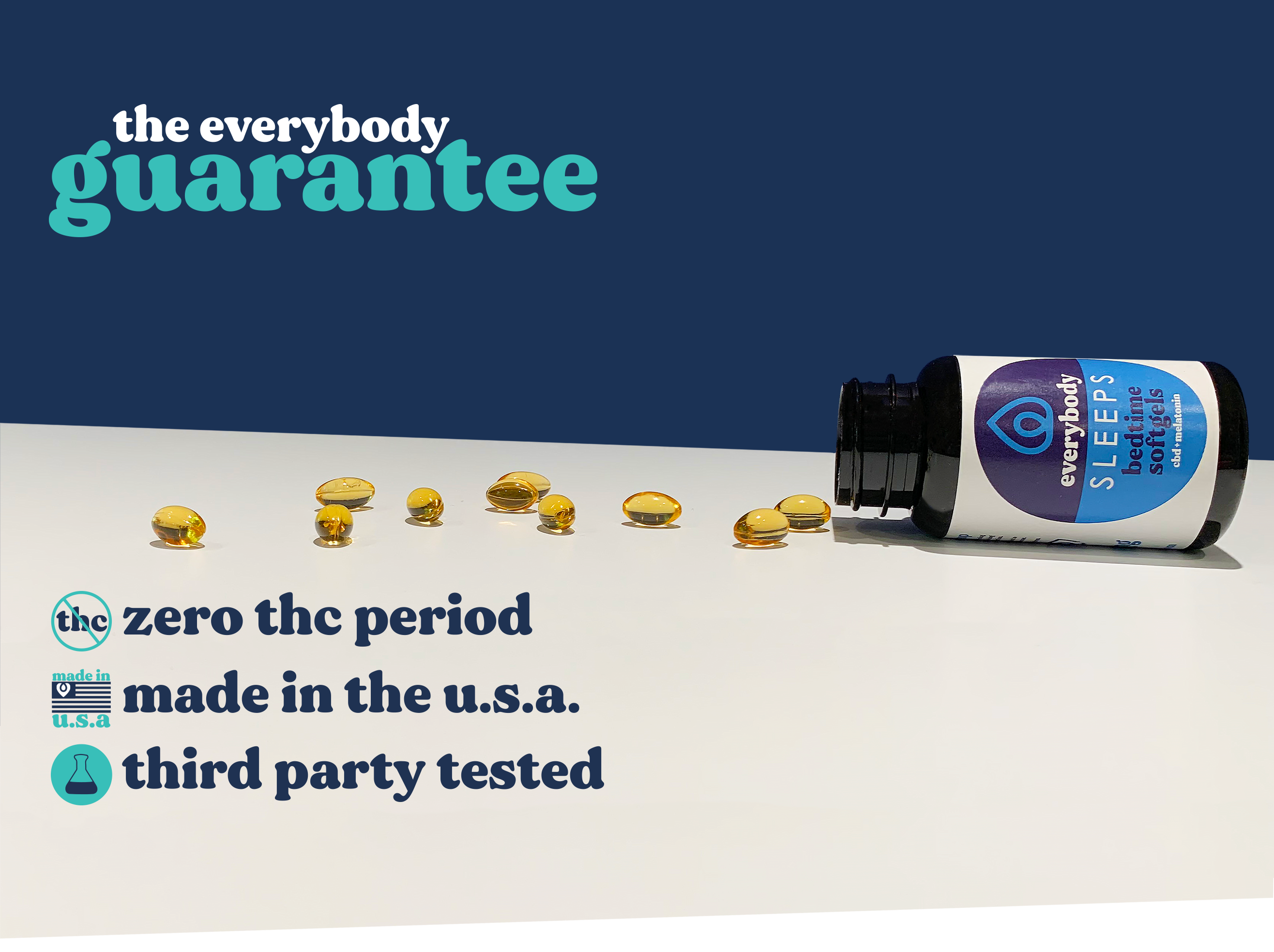
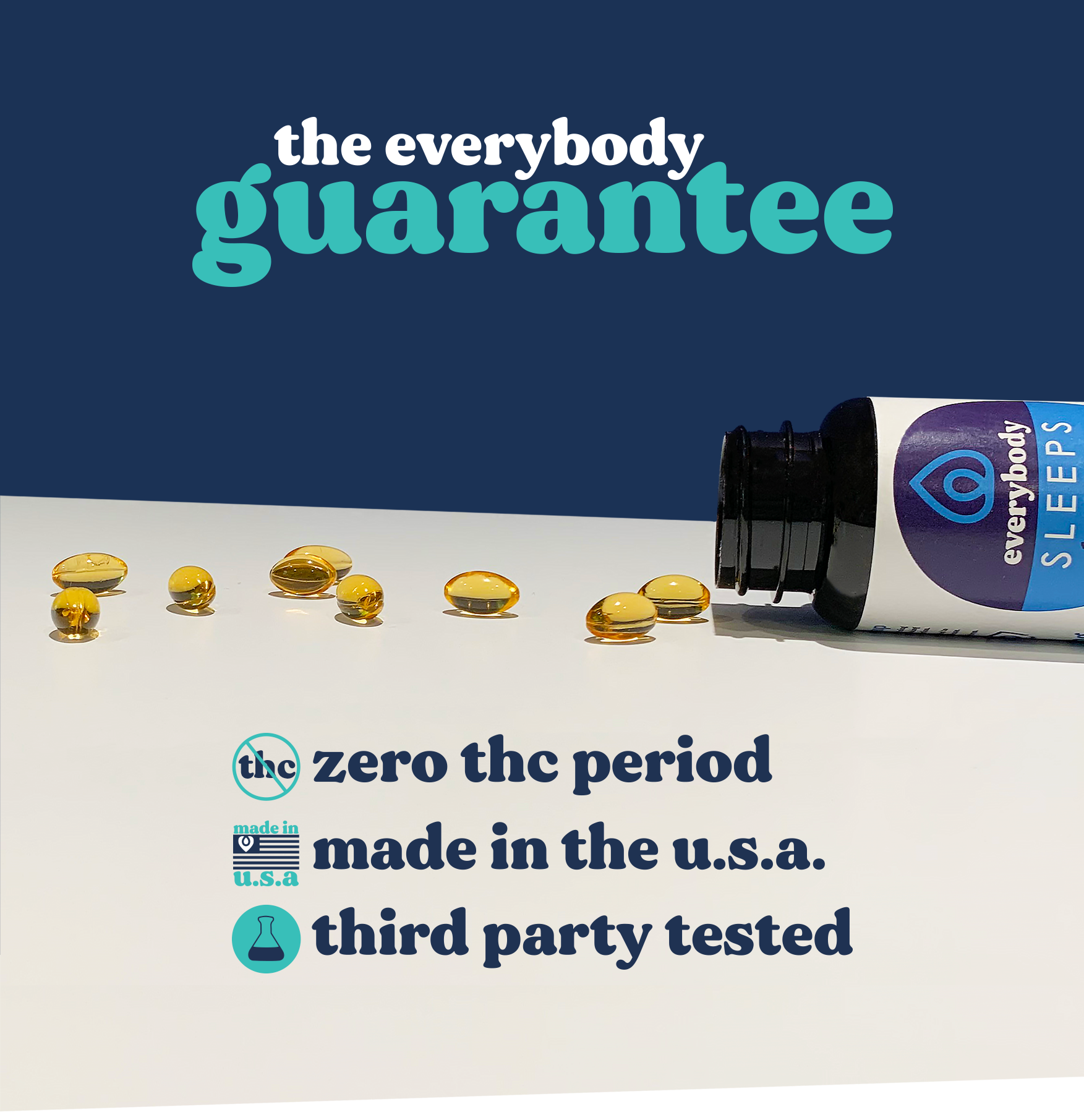

not sure what you need? no problem
our collections are carefully crafted to work together
choose your benefit below to get started
relax
it is harder than ever to unplug & unwind.
our everybody relax collection is designed to release the tension after a long day.
click the button below to learn more about everybody relax and to shop the full collection.
recover
life comes with aches & pains.
our everybody recovers collection is designed to help you recover, naturally.
click the button to learn more about the everybody recovers & to shop the full collection.




